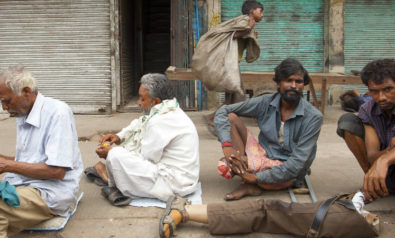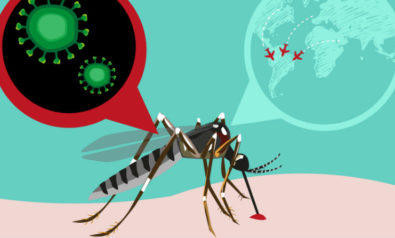Brazil declares a state of emergency to stem the spread of the Zika virus.
Since October 2015, nearly 4,000 babies in Brazil have been born with microcephaly, an incurable disease that causes brain damage and is suspected—but not proved—to be linked to the Zika virus.
The disease is named after the Zika Forest in Uganda, where it was first isolated in 1947. Usually innocuous, it causes very mild symptoms similar to a cold in adults. This latest outbreak that has affected mostly Latin America has reported cases of microcephaly among infants.
An estimated 1.5 million Brazilians have been infected with the mosquito-borne disease, which has spread to at least 24 countries. The first case of Zika in the US has just been reported in Texas and is said to have been sexually transmitted. Some governments have issued controversial calls on women to delay planned pregnancies for at least two years.
Channel 4 News travels to Recife, the epicenter of the epidemic, where a state of emergency has been declared.
The views expressed in this article are the author’s own and do not necessarily reflect Fair Observer’s editorial policy.
Photo Credit: Kateryna Kon / Shutterstock.com
We bring you perspectives from around the world. Help us to inform and educate. Your donation is tax-deductible. Join over 400 people to become a donor or you could choose to be a sponsor.
Support Fair Observer
We rely on your support for our independence, diversity and quality.
For more than 10 years, Fair Observer has been free, fair and independent. No billionaire owns us, no advertisers control us. We are a reader-supported nonprofit. Unlike many other publications, we keep our content free for readers regardless of where they live or whether they can afford to pay. We have no paywalls and no ads.
In the post-truth era of fake news, echo chambers and filter bubbles, we publish a plurality of perspectives from around the world. Anyone can publish with us, but everyone goes through a rigorous editorial process. So, you get fact-checked, well-reasoned content instead of noise.
We publish 2,500+ voices from 90+ countries. We also conduct education and training programs
on subjects ranging from digital media and journalism to writing and critical thinking. This
doesn’t come cheap. Servers, editors, trainers and web developers cost
money.
Please consider supporting us on a regular basis as a recurring donor or a
sustaining member.
Will you support FO’s journalism?
We rely on your support for our independence, diversity and quality.


















